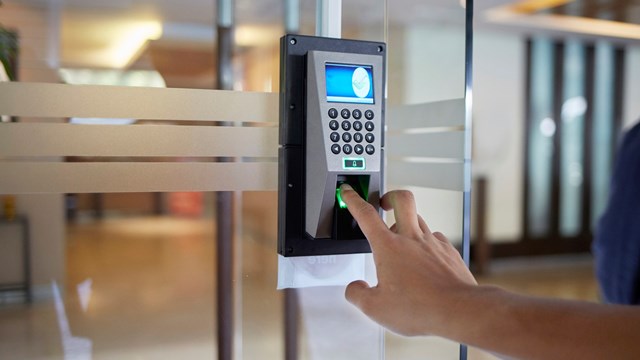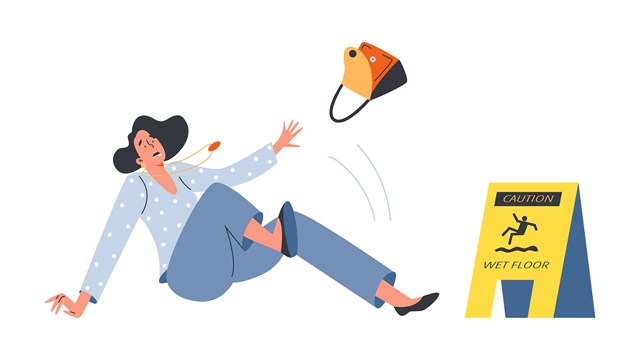The old axiom about New York City government is that it's a bureaucratic hell, an exasperating nightmare in which John Q. Public gets passed from department to department whenever a problem crops up and immediate assistance is needed.
Does your upstairs neighbor play his stereo at all hours of the night? Is the pothole on the corner big enough to double as the neighborhood swimming hole? When is the next garbage pickup for your building?
Well, answers to those types of questions and more are just a phone call away with the debut of 311, a citizen service hotline where operators can answer frequently asked questions and respond to quality of life issues like unreasonable noise, dangerous road conditions or a broken streetlight. The new hotline for non-emergency service calls launched in March, and is open 24 hours a day, 365 days a year. It is staffed by professionally trained operators who will answer all types of questions, log service requests and refer callers to appropriate city agencies, according to the mayor's office.
The
Noise is the number one issue on the minds of city residents followed by questions about the smoking ban and requests for smoking cessation information; pothole complaints; blocked driveways; traffic signal defects; landlord complaints; requests for information about the earned income tax credit; requests for information on chlorofluorocarbon/freon removal; requests to repair defective streetlights; and rules for alternate side of the street parking.
"Getting help from the city shouldn't be a chore," says Mayor Michael R. Bloomberg. "It should be as easy as picking up the phone and dialing one number to get in touch with any service you need.
"When are the alternate side of the street parking rules in effect? Call 311. Need to report a pothole or quality of life problem. Call 311. Want to find out how to reserve a ball field? Call 311."
Anyone living in the city that never sleeps is surely not surprised that noise is a constant irritant as the 35,608 complaints called into the hotline will attest. Next on the list, says Werbell, were the 11,768 callers who contacted the hotline to ask about smoking cessation services in relation to the smoking ban that took effect March 30 under the mayor's Smoke Free Air Act. The new legislation prohibits smoking in workplaces, bars, restaurants, government institutions and other facilities. Nearly 9,900 callers reported potholes that needed repair, and 6,048 complaints were registered about blocked driveways. A total of 5,575 complaints were logged about defective traffic signals, and 5,164 people called in to complain about their landlord, according to Werbell.
The type of complaint dictates the response and the corresponding response time, Werbell says. For example, a noise or loitering complaint usually would receive immediate attention whereas a complaint about a pothole or broken streetlight would be referred to the appropriate agency for repair according to the city's maintenance schedule and may take several days.
A noise complaint, for example, will go directly to the desk sergeant at the precinct, who in turn, will validate it and assign it to a field officer to check out, according to Werbell. "And that is pretty instantaneous. If someone is loitering outside a building, you can't go there two days later."
With a pothole complaint or a streetlight defect, the time frame may be one to seven days, he says. Over time, as the system acquires more volume of data, the city administration will be able to get a better handle on street and pothole defects, thus leading to speedier repairs, according to Werbell.
|
TOP 311 HOTLINE CALLS |
|
Noise: 35,608 |
| Quit Smoking: 11,767 |
| Potholes: 9,895 |
| Blocked Driveways: 6,048 |
| Traffic Signal Defects: 5,575 |
| Landlord Complaints: 5,164 |
The hotline fields calls in one central location rather than having 40 call centers spread out over the entire city, says the mayor. The service is also more proactive and will allow the city to measure its delivery of services, according to Bloomberg. And in such a diverse metropolis as New York City, the 311 operators are fluent in more than 170 languages.
"For the first time we will know how long it takes to fill potholes, fix a leaky fire hydrant, or repair a broken streetlight," says Bloomberg. "Now we will be able to see problems and address them. 311 gives the NYPD the tools to rapidly address quality of life complaints and plan proactively to prevent such problems in the future. For example, if you call 311 with a complaint about loud noise in your neighborhood, that complaint will instantly show up on a computer screen at your local precinct with all the information necessary for the police to take action," Bloomberg says.
While the system strives to be as efficient as possible, it doesn't mean your problems will be solved instantly, however, says Werbell.
"It will speed up delivery of services but 311 is also a management tool for the city. It allows us to analyze data in ways we could never before. It's a useful tool," says Werbell. Your complaint, he explains, may trigger an investigation that could nip a potential problem in the bud. A noise complaint coupled with blocked driveways and double-parked cars could in fact be a signal that an illegal social club might be operating in a particular neighborhood, he says. In this way, the city could act on those complaints and stop what may be a more volatile disturbance in the future.
Owners of private co-op or condominium buildings are required by law to maintain apartments in a habitable condition and provide heat, hot water and other essential services. If the building owner fails to provide such services, you may report that kind of condition to the 311 hotline. When a call comes in, a uniformed code enforcement inspector is sent to investigate the complaint. If a violation exists, the owner is issued a notice of violation and instructed to repair the hazardous condition. A shareholder, tenant or unit owner can check on the status of repair work in their apartments by calling the 311 hotline.
Callers can also get information about various city departments and services from finances to transportation to housing. Information is available on alternate side of the street parking rules, tax abatements and credits, how to safely dispose of hazardous waste materials or other substances, when your neighborhood library is open, and when trash will be picked up in front of your building.
If someone calls 311 accidentally, and they have an actual emergency, their call will be automatically switched over to the 911 system and emergency services will be dispatched, Werbell says.
So whatever your problem, city operators are on call 24 hours a day, seven days a week. While corporate misdeeds have dominated the airwaves recently and damaged the public's trust in its institutions, it's refreshing to see in some small way that city government can be made more accountable to the people that it serves.







4 Comments
Leave a Comment